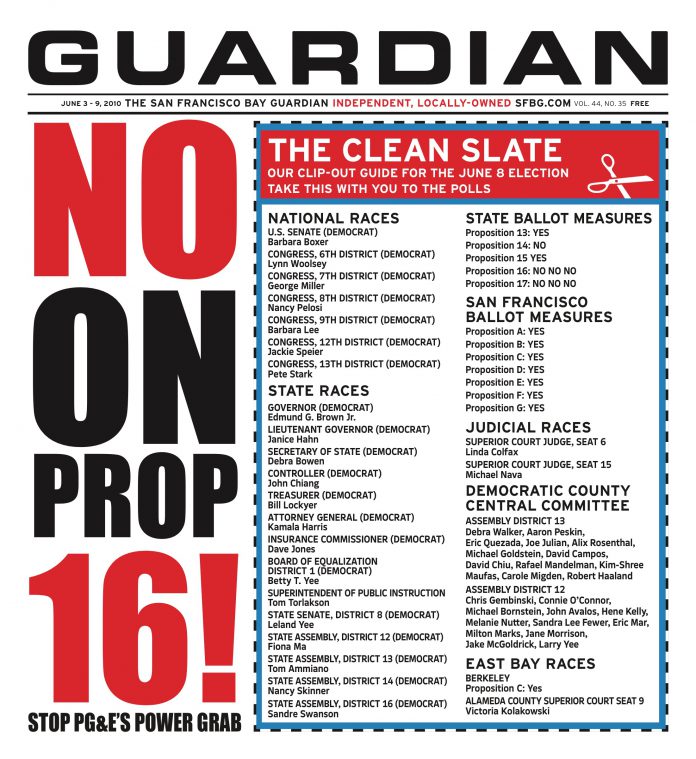FILM A friend recently opined that movies about hitched couples stumbling through matrimony were far less fun to watch than movies about unmarried couples fumbling toward commitment. There is a kernel of truth here. The question "Will they get together?" is certainly more tension-filled than "when will they finally concede defeat?"
Agnès Varda, one of cinema’s smartest and slyest observers of gender relations, disproves my friend’s hypothesis and gives matrimonial ennui a gentle ribbing in two early films: La Pointe Courte (1955), her debut, and Le bonheur (1965). Screening as part of the Pacific Film Archive’s showcase of recent acquisitions, "Brought to Light," both films nominally revolve around married couples negotiating crises. Varda, however, is far more interested in observing marriage as a social contract, one that not only frequently skews in favor of men, but that also isolates both participants from the rest of the world as much as from each other.
Arguably the stylistic precursor to what would become the French New Wave, La Pointe Courte cuts between the everyday tragedies that befall the inhabitants of a small Mediterranean fishing village and the urban married couple visiting their community. The couple complains of looking for something new and fresh (hence the vacation), even as they remain oblivious to the villagers’ dramas happening around them. When the two narrative threads join at the film’s end, at the town’s ritual jousting match, the couple’s resolution to continue on is secondary to their finally coming together with the social whole.
In contrast to the black and white pensiveness of La Pointe Courte, Varda’s third feature, La bonheur, is a cheerful affair about, well, an affair. Infidelity has never looked so painfully pleasant. Filmed in a sunny palette with a soundtrack of Mozart chestnuts, Le bonheur revolves around François and Therese (real-life couple Jean-Claude and Claire Drouot), whose picture-perfect marriage includes two adorable kids and Sunday picnics in the country. Enter Émile, a young woman who catches François’ eye. The two start an affair, and François discovers that he has doubled his happiness. Eventually he comes clean to Therese, who, in the film’s most shocking moment, steps down as his "wife," offering Émile her place.
François tries to be an honest husband and have it both ways, but has to make a choice. He chooses his happiness over Therese and the family he has made with her. Varda doesn’t judge him for it, but she doesn’t really have to: he’s effectively tied the rope to hang himself with. After all, as Varda later remarked about her film, "Happiness is a fruit that tastes of cruelty." Perhaps the problem with marriage, then, is the "happily ever after" part.
LA POINTE COURTE
Sun/6, 5 p.m., $5.50–$9.50
Le bonheur
June 10, 7 p.m., $5.50–$9.50
Pacific Film Archive
2575 Bancroft, Berk
(510) 642-5249

